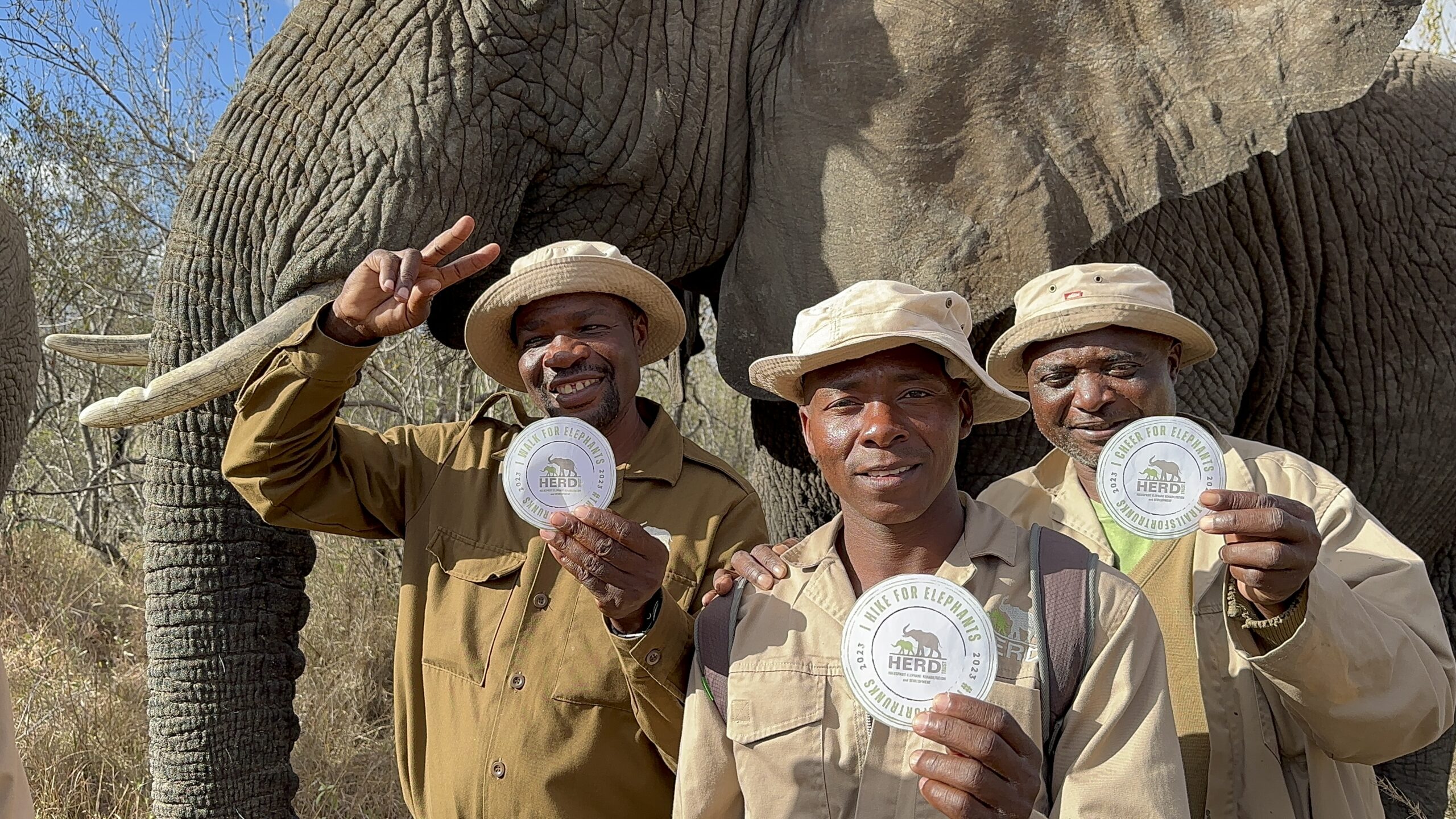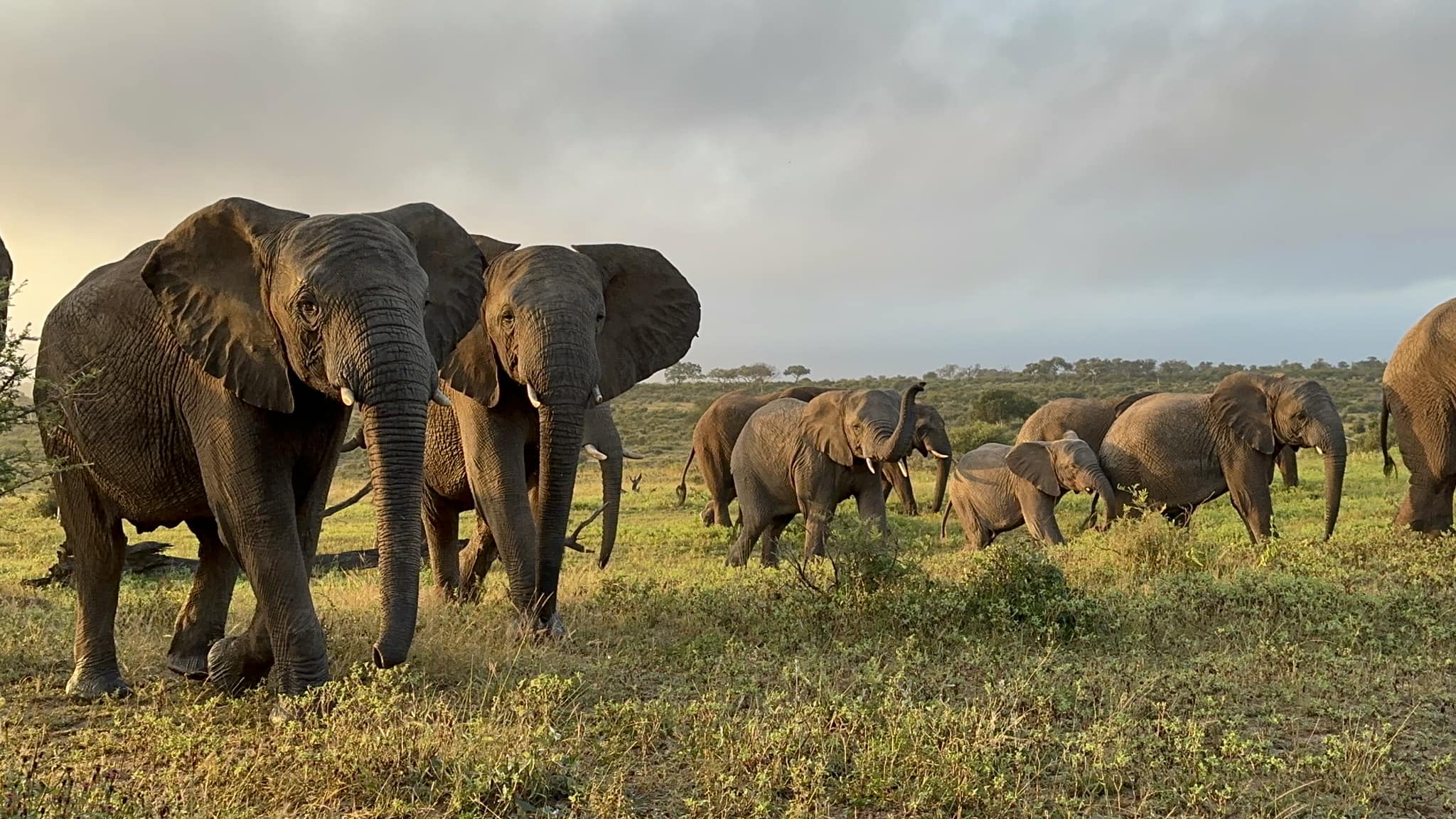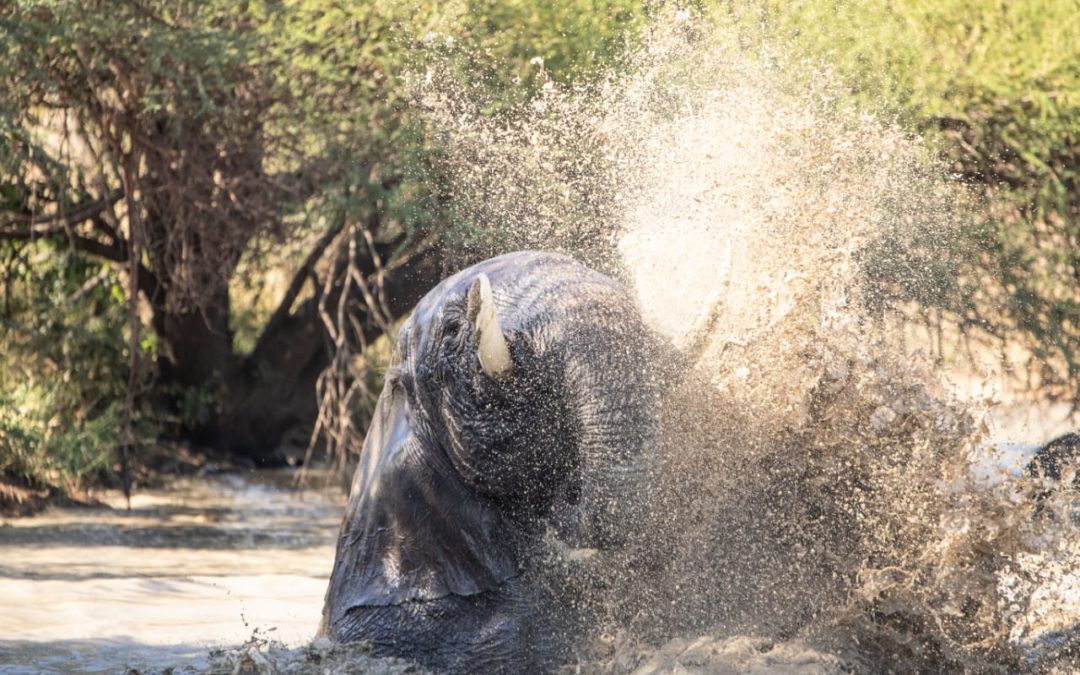In this video below, we look at how to identify Zindoga, who turns 15 this year, on 25 October! It can be tricky to identify this young elephant, as he looks a lot like younger bull Mambo from some angles. Watch this video to find out which of Zindoga’s features can help you to distinguish him from other elephants.
Zindoga was born to Bubi in October 2007. He was the third calf born to the Jabulani herd – Limpopo was first and Klaserie was second. Zindoga’s birth came as a surprise, as Bubi showed no signs of being pregnant or approaching labour. She gave birth to Zindoga in the homestead overnight without anyone noticing. Zindoga means “the only one” or “solitary” in the Shona language.
Zindoga’s face resembles his mother’s. They have similar face shapes and brow bones, and they both have deep set eyes. Zindoga has a rather long, pointed face. He has prominent bones that run horizontally from beneath his eyes to his ears – it’s very useful to look for these bones when trying to identify him. When looking at Zindoga from the side, you can see that his head is more “pointed” than Mambo’s head. Zindoga doesn’t have any prominent gaps or tears in his ears, whereas Mambo has several. This may change as Zindoga grows up, as elephants often develop new tears in their ears over time. Zindoga has thick, widely-set tusks, as all elephant bulls do. His tusks are not quite as thick as Mambo’s tusks, but that may also change over time. Because Zindoga is still a young elephant, his tusks are still short. They will grow longer as he ages. Another trait that Zindoga shares with his mother is his tail. Like Bubi, Zindoga has uneven tail hair – one side has long hair and the other side has short hair. He didn’t always have this tail hair pattern, but as he grows up, his tail hair is becoming increasingly uneven. One day his tail may look just like Bubi’s, with almost no hair on one side. See if you can start to identify Zindoga among the other elephants in our videos!
Zindoga’s one stand-out moment must be when he helped save albino orphan, Khanyisa’s life with a vital blood transfusion. Khanyisa’s health took a sudden turn. She stopped drinking and eating, and had terrible diarrhea. Her energy levels were very low. A blood sample test revealed lower albumin in her blood, which could mean she was not absorbing protein from her diet. The cortisol levels (stress hormones) tested in her blood were fortunately low, so stress was ruled out as a possible cause. When her dung sample report came back, it showed that there was no sign of bacterial infection. Wildlife vet, Dr. Rogers, a long-time friend and trusted expert suggested giving Khanyisa a blood transfusion, to get her albumin levels up and to help boost her immunity at the same time.
Zindoga Saves the Day
Fortunately, with the Jabulani herd at close reach, there was access to blood from one of the bulls, Zindoga (Bubi’s son). He also needed veterinary attention due to an injury from jostling with Mambo the day before. The timing worked well to be able to treat him for his wound at the same time. The injury was in the mouth, where Mambo’s tusk had most probably caught and hurt Zindoga.
Dr. Rogers started the process with Zindoga, using a standing sedation treatment called BAM, which we feel is less stressful on a big elephant. Once the bags were filled with blood from Zindoga, it was time for Khanyisa’s transfusion in the orphanage. The transfusion took some time, but it was an overall success. Khanyisa’s health improved after the transfusion, herd stools were more solid, she started drinking her milk well, and her appetite and energy improved.
If you would like to foster Zindoga, you can do so here >




 Comment
Comment






